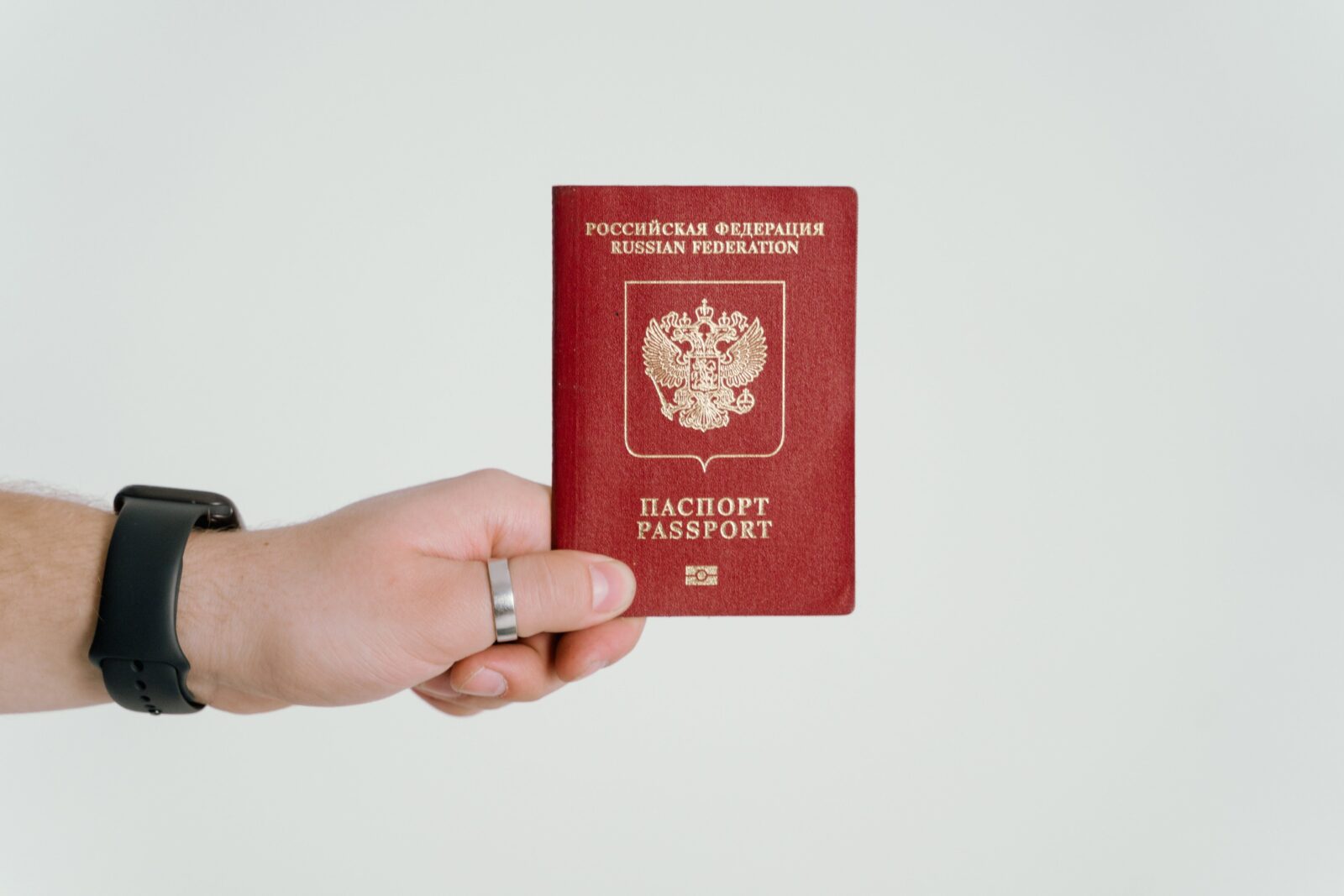On April 27, 2023, Russian President Vladimir Putin signed an executive decree stating Russia would deport all Ukrainian citizens who did not accept a Russian passport by July 1, 2024. The President declared that whoever did not follow this policy would be considered stateless and be forcibly removed. Russia’s declaration evidences a continued effort on Russia’s behalf to exert more influence on the nation.
However, it is not an isolated event. Over the past twenty years, Russia has participated in what has become known as passportization platforms in Georgia and Ukraine, fast-tracking or issuing Russian passports to breakaway regions to increase presence and political pull in areas of interest. In fact, on April 24, 2019, just four years before Russia’s invasion of Ukraine, Putin signed a decree expediting Russian passport citizenship procedures for Ukrainians living in the Donetsk and Luhansk regions.
What Russia’s actions demonstrate on a broader scale is that passports have become powerful tools in international relations, thereby influencing not only the movement but also the benefits, identities and rights of individuals. Sometimes, passports have even demarcated who is allowed to leave active warzones, with early evacuation out of the Gaza Strip into Egypt segmented by citizenship, and only foreign or dual passport holders allowed to make the Rafah crossing. How society has gotten to this point, and the mechanisms in which passport and citizenship processes have been abused and complicated over the past decades, open conversation regarding the history and present status of these travel documents.
A Brief History of the Passport
The creation of the contemporary passport system is often attributed to the aftermath of World War I, where after mass refugee displacements, an international effort by the League of Nations began implementing protocols for organized state recognition and travel.
Yet, there is evidence that nations have been trying to classify and control individuals’ movements for much longer. Reports have been discovered of ancient China as early as the 3rd century BCE employing a check-point system of wood-written documents called zhuan to determine who was allowed in or out of the country’s borders. Early attempts illustrate that the policy of inclusion and exclusion regarding citizenship and the state has proved pivotal to the creation of travel documents, in whichever form, to confirm ones belonging to a particular political entity.
Golden Passport and Visa Programs
Since then, exactly who is allowed to receive documentation has become an extremely contentious topic. Over the past three years, Europe in particular has been cracking down on what are known as “golden passports” or “golden visas,” investment programs providing official documents to foreigners who invest a set amount into a country’s economy. These programs were created to ease national financial burdens and promote foreign contributions to housing, cultural or scientific exploits and financial funds.
However, several programs were critiqued and shut down after claims of corruption and security concerns. For instance, Cyprus ended its golden passport program after an investigation accused several government officials of approving passports to ineligible applicants with prior criminal records. Furthermore, earlier this year in Jan 2024, Portugal also announced it would be revising the rules for its golden visas after pressure from the European Commission to shut down financial investment document programs altogether.
The aim of many of these initiatives was to incentivize foreign direct investment in domestic economic sectors, and according to the London School of Economics, they have, in part, been successful, with the predominant market for the programs coming from China, the Middle East and Russia. Nevertheless, what makes these programs controversial is their inherent access inequality, allowing wealthy individuals greater possibilities and loopholes to earn citizenship benefits.
Freedom of movement has long dictated and been a prominent discussion regarding migration practices, and golden visas create a fast track for the wealthy to gain an ulterior advantage. Furthermore, without proper bureaucratic and accountability measures, abuse of golden passport and visa programs remains a prominent concern regardless of the economic benefit.
Citizenship Requirements and “Birth-Tourism”
In addition to golden passport programs, arguments over how citizenship is granted in the first place returned to the domestic mainstream after presidential candidate Donald Trump recently re-proposed revising the United States’ birthright citizenship structure, which, under the Constitution, grants everyone born on U.S. soil automatic national citizenship. Trump’s suggestions came after a conservative push to deny children of immigrants entering the United States illegally American citizenship.
The United States’ current birthright citizenship structure retains much of its history in the aftermath of the Civil War, where, to prevent the creation of citizenship classes following the abolition of slavery, the 14th Amendment ensured that anyone born on U.S. territory would be entitled to citizenship benefits. From that point on, challenges to this system have often been presented in relation to immigration practices. Yet, the 1898 Supreme Court Case of United States v. Wong Kim Ark protected and upheld that children of immigrants born on U.S. soil are entitled to American citizenship under the 14th Amendment. Wong Kim Ark was brought before the Supreme Court during the period when the Chinese Exclusion Act denied citizenship to Chinese immigrants to the United States, illustrating the ways the United States’ own naturalization platforms over citizenship have historically been racially motivated and restrictive.
Now, the United States is not alone in granting birthright citizenship. However, countries around the world differ in their primary citizenship requirements. For instance, many European countries operate under the “right of the blood,” with citizenship tied to that of the parent, regardless of where somebody is initially born.
In December 2020, the Trump administration also passed new visa rules to target the practice of what has become referred to as “birth tourism,” or pregnant women giving birth abroad to provide their children additional citizenship. The new visa rules limit the granting of B-non-immigrant visas unless the applicant in question proves medical reasons for the visit and reports proof of payment, a policy that has remained under the Biden administration.
Passport Fees and Economic Barriers
Globalization and increased mechanisms for transportation and travel have also led to what has been characterized as the “commodification” of passports. In the 2010s, during the Syrian refugee crisis, the underground economy for passports soared, and the Syrian government faced backlash for increasing passport prices to over $400 in 2014 with the aim of increasing government income.
Syria’s policy illustrates how passports are used as money-making schemes, both through legal and illegal channels. In the modern era, passports are the cornerstone dictating movement between states, which has opened the door for individuals to take advantage of those in need of travel documentation to immigrate or leave their country of origin. Passport fees have become tools for governments to restrict emigration. For instance, in 2022, it was reported that a Lebanese passport valid for 10 years cost approximately 10,000,000 L.L., or $663.
The nature of the passport system is inherently hierarchical, and provides citizens of developed nations clear mobility privileges, giving them access to most countries Visa-free. Despite being initially created as a standardized identification system, passports, and their subsequent citizenship promises, have become political and economic leverage tools for countries and groups around the globe. Policy debates over citizenship requirements, Russia’s passportization and golden visa programs highlight the need for caution when looking at passports’ evolution in domestic and international relations.
Following 9/11, travel, visa and passport processes have become more stringent to prioritize national security. However, recent global developments evidence discussions of passport arrangements that must balance security concerns while keeping in mind the ways passports are equipped as dividers and captors of movement.







